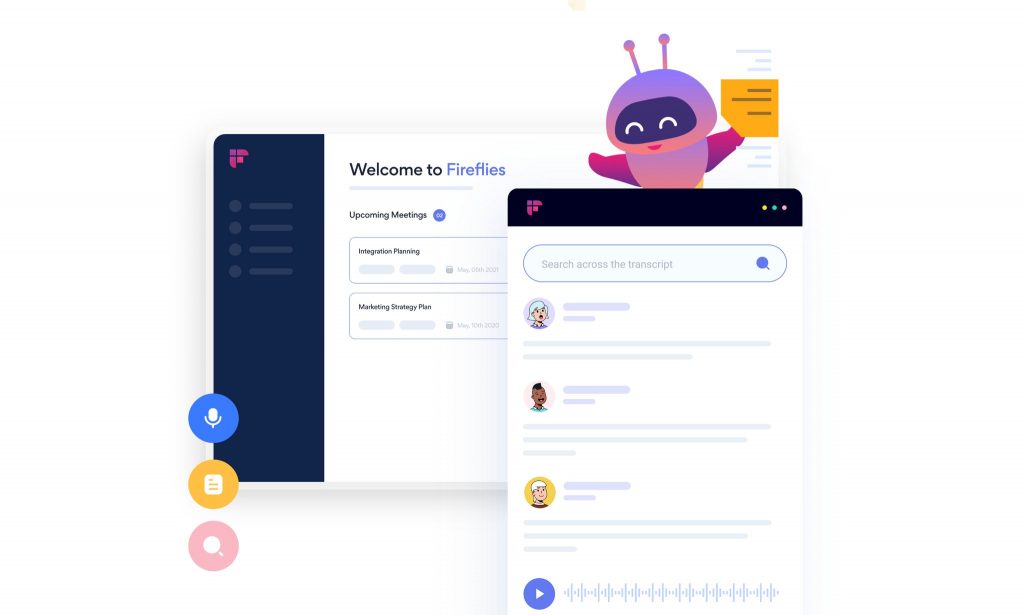The dim light of fireflies always seems magical, but their beauty wasn’t created overnight. It went through several levels of transformations amidst the wildness of nature.
Fireflies, a transcription company co-founded by Sam Udotong underwent a similar transformation. From a broke bootstrapping founder living off two boxes of Domino’s pizza and Soylent’s every week to building a million-dollar transcription company, Sam shares the unique story of how his company was born in a chat with Technext.
Starting out, Sam never really thought about starting a business until he got into the Massachusetts Institute of Technology (MIT).
“I grew up in New Jersey, and a small town near, Philadelphia, went to college at MIT where I studied aerospace and computer science. That’s where I probably got my first taste, working with people who knew about tech. I never thought that I would do that before I got there,” he said.


He explained that there were lots of opportunities like resources and guidance that made it easier to start a company. “One of the things that actually got me into tech was hackathons. MIT had several hackathons and when I was an undergrad, I would go to some of them. One of them was where the actual original idea for fireflies started.”
The best time to work on something is when you are young
The road to Fireflies’ success can be described as anything but easy. Sam narrated that he turned down six-figure jobs and a graduate school program to work on the project.
“I remember I had applied to graduate school. I got into really good programs. I also had applied to full-time jobs and I had some full-time job offers in Los Angeles where I could have got paid, like six figures,” Sam revealed. “At the end of the day, I chose Fireflies. I woke up every day, excited to work on building something that could impact everyday lives.”
After deciding to start his company, Sam and his co-founder, Krish moved to Silicon Valley. According to Sam, they took the risk because they felt the best time to work on something was when they were young. “We can always go back in the future and go to grad school or go get a job,” he added.
Moving to Silicon Valley
As a young grad without a job & building a startup, living in one of U.S. most expensive cities wasn’t easy. Sam revealed that he had to change his habits and diets in order to survive in Silicon Valley.
“I remember literally thinking like, how do I make it to the next month? For three years, I would order two boxes of Domino’s pizza pretty much every Monday. And, I would have a few slices of pizza every day, and I would also have a bottle of Soylent, like a meal in a bottle kind of thing.”
“We moved out there in 2016. We raised our seed round in 2019. Between them, it was really just bootstrapping, really doing the bootstrap grind, trying to minimize everything.”
Sam Udotong, CTO Fireflies
“In the first year, I and my co-founder spent $15,000 on food, Uber, servers & rent, together largely due to the diet which helped minimize costs,” Sam revealed.


Fast forward to 2021, the company has now raised over $19M, with the latest being a $14M round led by Khosla.
Fireflies now offer a two-part service, a recording and transcribing voice conversations from video meetings and a voice data plug into other applications that helps clients automate data entry, task creation and more.
Looking back, Sam expressed that his main driving force was customers showing that there was value in what they were building.
“I remember the first time that we’re able to get someone to pay for the products was one of the happiest days of my life. Like, wow, we just built something that people actually pay for it, even if it was just $5 or $10. That was exciting.”
He added that even while they were unable to raise venture capital to pay themselves, seeing the validation and believing in what the market was saying helped.
“Each progress brought more confidence in the journey, even if we’re getting paid like nothing, while we saw our friends getting paid hundreds of thousands of dollars, and going on trips and being able to go to fancy dinners and getting fancy apartments. It was really the core belief that we can build something that will work and people will value on the long run.”
Asides from that, Sam acknowledged that having a supportive and strong co-founder was extremely important for his success.
“My co-founder is one of the biggest hustlers. Always super smart, always working. I’m always optimistic and we balance each other very well in those ways. Without Krish working with me I don’t think I would’ve made it. I know some people do it solo and I think it’s a lot harder. “


Get someone to pay for your product early
Asked what his biggest challenge as a bootstrapping founder is, the Fireflies Co-founder revealed that it was getting people to pay for his product.
I queried if he meant getting to that stage when a product is feasible enough for someone to pay for it? Sam said no! According to him, that was a mistake he made.
He advised any new bootstrapping founders to get someone to pay for their product early. “You actually don’t even need to build before you get someone to pay. Sometimes, you can sell a product before you build it or even write a line of code.”
Sharing his experience, Sam narrated that they had to change Fireflies idea seven times majorly because people weren’t paying for it.
“We spent 12 months building the first version and then we tried to charge for it and people didn’t want to pay. So, I mean, there’s only a matter of time until you go out of business or you pivot,” he said.
“So, we pivoted, then we tried to build something else again, we spent months building it and people didn’t pay, we pivoted again, spent months building, people wouldn’t pay. We learned our lesson. So we figure out how to get people to pay before we have to pivot.”
“We pivoted seven times in order to get to the current version that we are today. The version of fireflies that we had at the hackathon was very different from the fireflies that are today.”
Sam Udotong, Co-founder Fireflies
He revealed that for the current successful version of Fireflies, they actually charged before they built anything. “It was like if we can build this, we know people will pay because people are already paying for something that we didn’t build,” Sam concluded
Raising Funds in Silicon Valley
If Sam’s journey is anything to go by, raising funding in Silicon Valley can be very difficult. According to the Fireflies co-founder, they tried to raise funds many times but failed and decided to just keep bootstrapping.
Sam explained that there’s a lot of iteration to figure out how to tell a good pitch. He added that any first-time founder has to learn how to talk to VCs, how to meet them, how to communicate their business in a way that aligns with how others have done.
Asked if his African background affected his ability to raise funds, Sam acknowledged that being African created some hindrances. He explained that there are systemic issues that make it harder to raise funds.
“If you just look at the statistics of how much funding is raised by Africans, you will notice a clear systemic issue. A smaller proportion of funding is raised by Africans, even though they might make up a relatively greater percentage of the population.”


Plans for the Future
The influx of funds and the lockdown-inspired video conferencing boom has significantly helped Fireflies to quickly accumulate users. The company reportedly now has more than 10,000 teams spread across all continents including Africa.
According to Sam, the video conferencing boom essentially fast-forwarded all remote compatible tools by a few years, because it essentially pushed the world to become remote faster than it was meant to be.
Looking ahead, he believes that even after COVID-19 the world will continue to go remote over time. He added that for now, he is fully focused on building the company – building a good team, building a good culture, building good products and continuing to scale.
In Summary
Sam advised upcoming youths who wished to build a company to take learning into their own hands.
“Go online and search for how to build a company. Just every question you have, search Google – you’ll probably find the answers to it. Really it’s the first time in history where you can take learning into your own hands.”
Resources online are better than any university or any program that you can go to if you just find the right places to look.
Sam Udotong, CTO Fireflies
He added that asking for guidance from advisors and mentors and other similarly minded people helps, but ultimately, one should take matters into his/her hands and build something.






